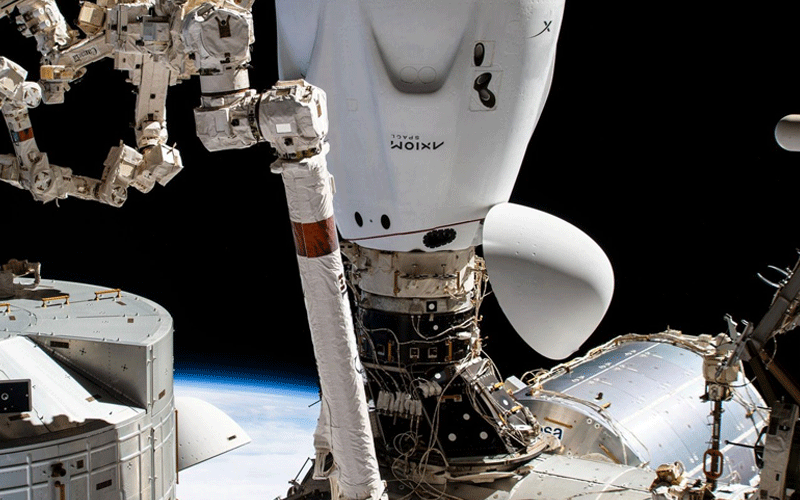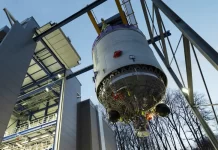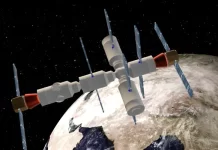
The European Space Agency has signed a Memorandum of Understanding with Axiom Space to explore collaborations in the fields of human spaceflight, science, technology, and commercialisation.
Signed on October 1, the MOU became immediately effective and will span an initial period of three years. The agreement included an option for an extension “based on mutual agreement.”
The press release that accompanied the announcement highlighted five key areas of cooperation. In addition to supporting nationally sponsored missions for ESA member states, which Axiom is already doing, the two organisations will explore the possibility of institutional missions that could give ESA’s astronauts greater access to the International Space Station. This dovetails with another key area of cooperation, which is access to the future Axiom Space Station. According to the release, the MOU “opens doors for European mission to access the world’s first commercial space station.”
Axiom will begin building its private space station by attaching its initial modules to the International Space Station (ISS). This will allow the company to begin with crew and science facilities while sharing the resources of the larger station. Once the ISS is retired, the Axiom station will be at a point where it will undock from the larger station and operate independently.
In addition to collaborating with what is Axiom’s core business, the MOU also allows for the possibility of European companies’ participation in the Axiom Extravehicular Mobility Unit spacesuit project. The final two key areas of collaboration are broader in their application, focusing on research and development and “broadened collaboration” in the fields of science and technology development.
While the agreement with ESA is a recent development, it is not the first time the agency and its member states have worked with Axiom.
Sweden, Poland, and Hungary have all signed agreements with Axiom Space to send chosen citizens of their respective countries to space. Sweden and Poland were required to involve ESA in the agreement because the countries will utilize members of the European Astronaut Corps for their respective missions. Hungary, on the other hand, is pursuing its own selection process, allowing the country to deal with Axiom directly. The country has set aside $100 million for its Hungarian to Orbit (HUNOR) programme.




